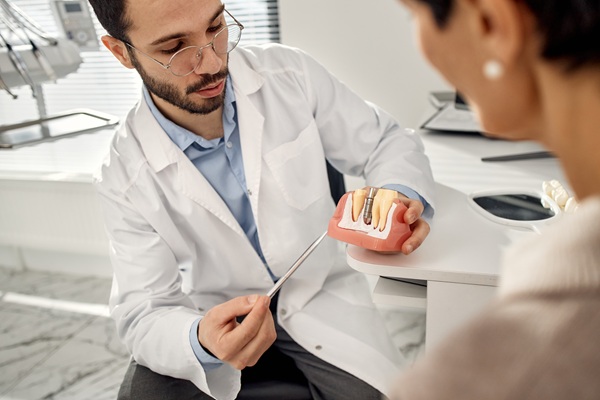 Implant dentistry uses dental implants to serve as the support for replacement teeth. The process involves a minor surgical procedure to place the implants. Although the risks are minimal, it can take some time for the mouth to fully heal and for the dental implants to fuse together with the jawbone after the implant dentistry procedure.
Implant dentistry uses dental implants to serve as the support for replacement teeth. The process involves a minor surgical procedure to place the implants. Although the risks are minimal, it can take some time for the mouth to fully heal and for the dental implants to fuse together with the jawbone after the implant dentistry procedure.
Everything to know about implant dentistry aftercare
The following review discusses what you can expect before, during, and after an implant dentistry placement procedure to help you prepare ahead of time. Of course, it is also encouraged to discuss the specifics of the procedure and aftercare expectations as well.
Before an implant dentistry procedure
Certain procedures may be necessary before the placement of dental implants. For example, a bone graft procedure may be recommended if the patient has experienced bone loss inside of the jaw due to periodontal disease or bone atrophy. The dentist and the patient can put together a treatment scheduled to address any potential concerns before the placement of the dental implant(s).
What happens during an implant dentistry procedure
The implant dentistry procedure, meaning the surgical procedure during which the dental implants are properly placed inside of the jawbone, is scheduled once the mouth has enough healthy jawbone to support them. This procedure involves making an incision into the gums, drilling a small hole into the jawbone, and placing the implant (or multiple implants for multiple teeth replacement).
The first week after an implant dentistry procedure
Some soreness and swelling are to be expected after an implant dentistry procedure. The swelling and discomfort may last for several days to more than a week after the procedure, although it should be tolerable with the use of pain relief medication and at-home remedies (i.e. a cold compress). During the initial recovery period, it is important to eat a soft diet and be careful when brushing to avoid irritating the affected area and increasing pain and discomfort.
The osseointegration timeline
Osseointegration must take place after the placement of dental implants; this can take several months. Osseointegration refers to the process of dental implants, which are made of titanium, fusing together with the natural jawbone to create a unified bond to ensure a strong hold for the dental restoration.
How to care for dental implant restorations long-term
You can care for your dental implant restorations the same as natural teeth. This should include protecting periodontal health to ensure the strength and health of the dental implants, which are similar to the roots of natural teeth. Talk to your dentist about how to practice good oral hygiene between scheduled cleaning visits.
Schedule an implant dentistry consultation today
Call our dedicated and professional team or send us a message for a prompt response to schedule an implant consultation visit, during which we can answer any questions you have and help you decide if a dental implant restoration is right for you according to your treatment goals and preferences.
Request an appointment or call Gledhill Dental at 509-800-8410 for an appointment in our Kennewick office.
Related Posts
Implant supported dentures combine traditional dentures with permanent dental implants to provide a stable and secure tooth restoration option. Unlike traditional removable dentures, this option is supported by two or more dental implants rather than your gum tissues. The additional stability of dental implants may make it simpler to bite and chew meals, particularly with…
Having a solid handle on good oral hygiene basics will help preserve the integrity of your teeth and mouth health for a long time to come. Steering clear of cavities, receding gums, or decay ensures that your smile is bright and beautiful for as long as possible. If you think you already have an excellent…
Having a firm understanding of oral hygiene basics can prevent tooth decay, gum disease, and general oral discomfort. Human beings go through life developing a range of habits that impact oral health, some of which are good and some of which are bad. Avoiding these damaging behaviors promotes strong teeth and gums that can last…


